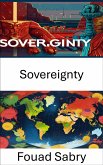"State Formation" offers a profound exploration of the intricate processes and historical contexts that shape states. This resource is essential for professionals, students, and enthusiasts eager to deepen their understanding of political science.
Understanding state formation is crucial in an era where the stability and evolution of states are paramount. This book provides in-depth perspectives on key topics, equipping readers to engage with the complexities of political development and governance.
1: State Formation - Explore foundational elements and diverse processes contributing to state creation.
2: Civil War - Analyze internal conflicts that redefine state boundaries and political structures.
3: Imperialism - Examine the impact of imperial ambitions on state formation and global borders.
4: Revolution - Investigate how revolutions dismantle old regimes and establish new political orders.
5: State (Polity) - Understand the characteristics and significance of the state as a political entity.
6: Sovereignty - Explore the evolution and role of sovereignty in state legitimacy and authority.
7: War - Assess warfare's influence on state development and the changes it drives.
8: International Relations - Discuss state interplay globally, focusing on diplomacy and alliances.
9: State-building - Learn about strategies and challenges in constructing stable, effective states.
10: Western European Colonialism - Evaluate the legacy of colonialism on contemporary state structures.
11: Politics - Delve into political systems' mechanics and their influence on governance.
12: Environmental Determinism - Consider geographical factors shaping state formation and development.
13: Democratization - Explore pathways and obstacles to democratization through significant case studies.
14: Military Revolution - Investigate military innovations altering state power dynamics.
15: Modernization Theory - Discuss modernization theories and their impact on state development.
16: Sociocultural Evolution - Analyze sociocultural factors in state evolution and development.
17: Realism (International Relations) - Understand realism's implications for state behavior and interaction.
18: Charles Tilly - Study Tilly's contributions to state formation and political development.
19: Otto Hintze - Examine Hintze's insights on political institutions and state history.
20: Coercion and Capital - Delve into coercion and capital's role in shaping European states.
21: Nationalism in the Middle Ages - Explore nationalism's roots and impacts on state formation.
Equip yourself with essential knowledge to engage with the complexities of state formation. This resource is a treasure trove of enlightening information and analysis, making it invaluable for understanding political dynamics.
Understanding state formation is crucial in an era where the stability and evolution of states are paramount. This book provides in-depth perspectives on key topics, equipping readers to engage with the complexities of political development and governance.
1: State Formation - Explore foundational elements and diverse processes contributing to state creation.
2: Civil War - Analyze internal conflicts that redefine state boundaries and political structures.
3: Imperialism - Examine the impact of imperial ambitions on state formation and global borders.
4: Revolution - Investigate how revolutions dismantle old regimes and establish new political orders.
5: State (Polity) - Understand the characteristics and significance of the state as a political entity.
6: Sovereignty - Explore the evolution and role of sovereignty in state legitimacy and authority.
7: War - Assess warfare's influence on state development and the changes it drives.
8: International Relations - Discuss state interplay globally, focusing on diplomacy and alliances.
9: State-building - Learn about strategies and challenges in constructing stable, effective states.
10: Western European Colonialism - Evaluate the legacy of colonialism on contemporary state structures.
11: Politics - Delve into political systems' mechanics and their influence on governance.
12: Environmental Determinism - Consider geographical factors shaping state formation and development.
13: Democratization - Explore pathways and obstacles to democratization through significant case studies.
14: Military Revolution - Investigate military innovations altering state power dynamics.
15: Modernization Theory - Discuss modernization theories and their impact on state development.
16: Sociocultural Evolution - Analyze sociocultural factors in state evolution and development.
17: Realism (International Relations) - Understand realism's implications for state behavior and interaction.
18: Charles Tilly - Study Tilly's contributions to state formation and political development.
19: Otto Hintze - Examine Hintze's insights on political institutions and state history.
20: Coercion and Capital - Delve into coercion and capital's role in shaping European states.
21: Nationalism in the Middle Ages - Explore nationalism's roots and impacts on state formation.
Equip yourself with essential knowledge to engage with the complexities of state formation. This resource is a treasure trove of enlightening information and analysis, making it invaluable for understanding political dynamics.
Dieser Download kann aus rechtlichen Gründen nur mit Rechnungsadresse in A, B, BG, CY, CZ, D, DK, EW, E, FIN, F, GR, H, IRL, I, LT, L, LR, M, NL, PL, P, R, S, SLO, SK ausgeliefert werden.









